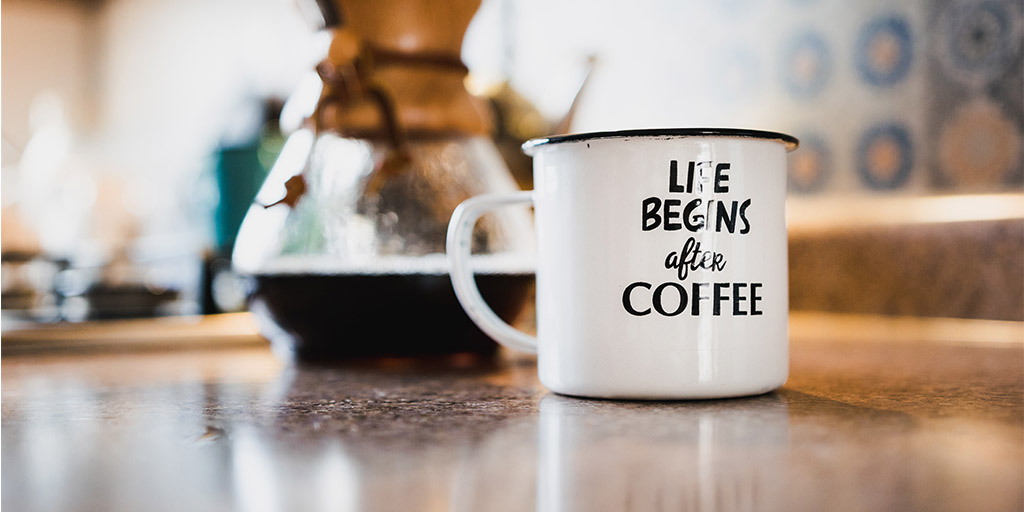
I am Mike’s favourite coffee mug. I come from a long line of coffee cups, a great dynasty, in fact, of mugs devoted to an essential service. Without me, Mike would be lethargic and unproductive. The morning is my favourite time of day, because as soon as he arrives at 8.30, Mike is thinking about putting me to work. I like to be useful. Caffeine is a psychostimulant with the same central effects as the classical nervous system psychostimulants cocaine and amphetamines. It affects adenosine receptors in the brain. On most days, he puts on the coffee pot while waiting for his computer to sputter into life, and then answers any urgent emails. Without me, his emails would be full of typos and much grumpier.
On this particular day, Mike is leading a workshop in the morning, for two hours. This happens about 4 times a week and I am not in favour. While making sure all the participants arrive and are offered a drink, Mike often forgets about me completely and grabs some other mug, flaunting itself in the kitchen to any passing fancy. His workshops seems to involve information slides, questions, group work, space for reflection, and networking. Coffee is a great social lubricant, breaking the ice and perking everyone up!
Mike returns from workshops tired and croaky, so I am always on hand to buck him up. After lunch there’s often a meeting – either a team meeting to catch up or a working group meeting about specific projects. Mike especially looks at ‘transitions to research’. I always go to these meetings; without me the meeting would seem even longer.
If there isn’t another workshop in the afternoon, it’s usually back to the desk. Mike has to respond to several different projects, such as assessing DTP funding applications, organising events with external providers, or supporting the doctoral college conference committee. This might be emails, meetings, designing materials or giving feedback on students’ written work. Some workshops require students to send pre-work or contribute to an online project, so Mike sends them very polite emails. At first I am forgotten as he types and grimaces, but soon he begins to droop, and he returns to me, like a lost sheep to the fold. The coffee in the afternoon is a little stronger, and I hum with satisfaction. Medical advice is to have no more that 400mg of caffeine a day, which is about 3 cups of coffee. That can’t be right.
Throughout the day, students pop in with questions about workshops or IT or other support RDP offer, and Mike and the team will always talk them through the issues; helping troubled individuals is the top priority. For distance learners they may run a ‘virtual’ workshop over Skype or a one-to-one coaching session.
The afternoon is also a space for updating resources. Mike spends some time trying to make Surrey Learn operational, advertising events on Twitter, writing content for books, podcasts or online courses, and posting the office ‘quote of the week’. I am on hand because holding on to a friendly mug can be a great thinking tool. Mike contemplates filling me with tea or water instead, but it never happens. He worries he might be addicted, but is too jumpy to think about it for very long.
The end of the day is a great time for me to relax and enjoy getting a good wash, while Mike writes his to-do list for tomorrow and perhaps discusses some team topics informally, such as workshop design, upcoming café events or coffee supplies. Studies have suggested that drinking coffee may help enhance thinking skills and slow the mental decline that comes with age. Mike is clearly counting on this as he takes a final slurp and packs up for the day just before 5. I have my suspicions that he has another, secret, coffee mug at home, but I am too afraid to ask.
